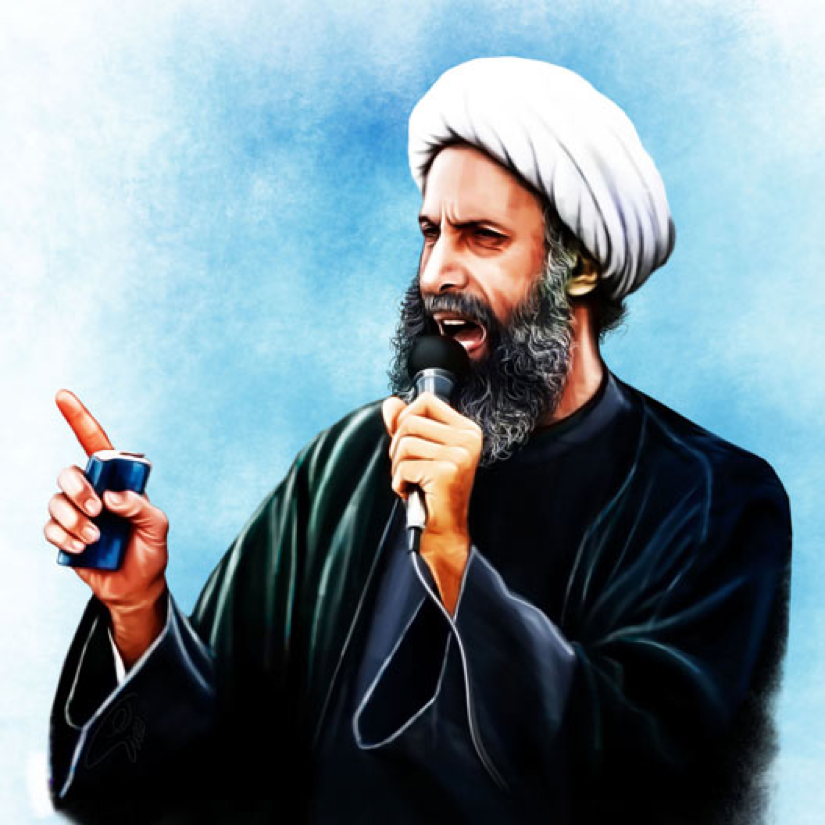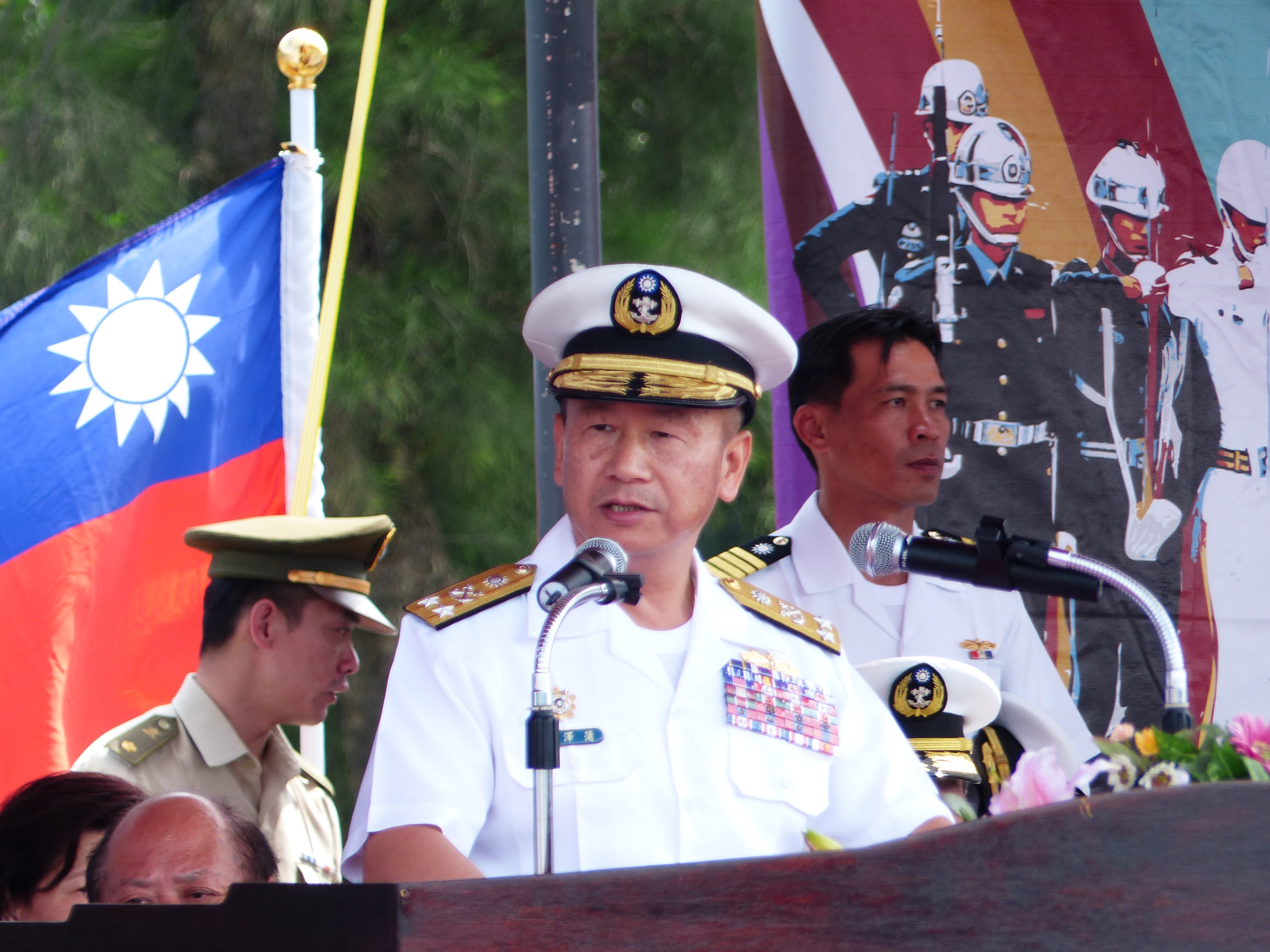Portrait of Nimr Baqr al-Nimr an independent Shia cleric in al-Awamiyah, Eastern Province, Saudi Arabia by Abbas Goudarzi, Wikipedia Commons.
On January 2, 2016, the Saudi government executed Nimr Al-Nimr, a prominent Shi’a Saudi cleric, who spent much of his adult life speaking for his marginalized community. Al-Nimr’s sermons and speeches came to symbolize the voice of Shi’a displeasure with the living and social conditions they find themselves in Saudi Arabia, where they are marginalized both politically, socially, and economically. Born in 1960, in al-Awamiyah, a village in the Qatif region of eastern Saudi Arabia, Al-Nimr obtained his early education in his home province, where the Shi’a community has sought political reforms in the Kingdom since virtually the creation of the Saudi state. The political conditions in Qatif certainly influenced Al-Nimr’s political thinking and his perspective on the condition of his community in Saudi Arabia. After completing his early education, Al-Nimr moved to Iran in 1979, where he enrolled in the famous seminaries in Qum, and then in Syria, before returning to Saudi Arabia in 1994.
Almost immediately after his return to his country of birth, Al-Nimr’s relationship with the Saudi authorities became tense and at times led to harassments, interrogations, and threats. The Saudi intelligence services frequently questioned Al-Nimr, due to his outspoken and at times politically charged sermons in his home village, which finally led to his arrest in 2003. His speeches called for reforms and changes to the political and social conditions of Shi’as in Saudi Arabia.
Al-Nimr remained politically active, and in 2009 when Shi’a pilgrims clashed with Saudi authorities in eastern Saudi Arabia, his speeches became more politically charged. Al-Nimr spoke against the dictatorial regimes throughout the Middle East, including those headed by Alawite Shi’as like the one in Syria. His speeches also called upon Shi’as in Saudi Arabia to rise against the regime, and seek equal citizenship rights in the country. He even advocated for reforms in the political system, encouraging the Kingdom to implement democratic and electoral changes. Some have even claimed that some of his speeches and sermons urged the Shi’as in the eastern province of his birth to secede from the country, and form an independent state that respected human rights. Al-Nimr’s political activism led to his sentencing and execution.
Al-Nimr’s execution was described as an “assassination” by Ibrahim Kazerooni, the Imam of the Islamic Centre of America, the largest Shi’a mosque in the United States. Kazerooni also described the execution as a “Human Rights violation, he [Al-Nimr] was simply calling for political reforms, and sought an end to the Saudi oppressive and violent practices against certain minority groups in the country”. He also described Al-Nimr “as a peaceful man, who had never carried any weapons or sought violence against the state”. Kazerooni, clearly spoke to a larger issue, that it is the duty of religious leaders to advocate for reforms and changes in order to ensure that the oppressed can attain a better life. I am made attempts to reach the Saudi embassies in Ottawa and Washington, the Iranian embassy at the United Nations, but no comments were made in regards to the execution, and my requests were re-buffed.
Contextualized within the larger historical framework, Al-Nimr is part of a long line of Shi’a clerics who have sought political and social reforms in the Middle East. Iraq in particular has had a long line of rebellious Shi’a clerics who advocated for democratic and social reforms in the 1920s and 1930s, when a number of them joined and encouraged their followers to participate in active rebellious activity. Most prominently, Shi’a clerics helped to lead the 1920 rebellion in Iraq against the British colonial government.[i] Those leaders believed that once human rights were protected, a fair, equal economic system would provide the poor with better living conditions. At the same time, they believed that they would be able to protect the religious institutions belonging to the Shi’a community, and other communities in the country.
It is a problem that Al-Nimr’s execution has been discussed as an isolated incident, but when considered in the larger political context, and historically analyzed, the execution is clearly not only politically charged, but also symbolizes the oppressive political and social environment that political dissidents face in Saudi Arabia and elsewhere in the Middle East.
[i] Hanna Batatu, The Old Social Classes and the Revolutionary Movements of Iraq: A Study of Iraq’s Old Landed and Commercial Classes and of its Communists, Ba‘thists and Free Officers (London: Saqi Books, 2004).




